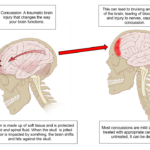
3 Strategies-Physiotherapy in Sports Injury Prevention-Don’t Suffer
Sports, a realm of exhilaration and competition, demands peak physical performance from athletes. Yet, this pursuit often comes hand-in-hand with the risk of injuries that can halt progress and tarnish careers. Enter physiotherapy, a specialized field that not only aids in recovery but also plays a pivotal role in preventing sports injuries and elevating athletic performance. In this article, we delve into the profound impact of physiotherapy techniques on athletes, shedding light on their preventive prowess backed by scientific evidence.
UNDERSTANDING THE SCIENCE BEHIND SPORTS INJURIES:
Sports injuries are often a result of the intricate interplay between physical strain, biomechanics, and tissue resilience. With athletes constantly pushing their bodies to the limit, the risk of overuse injuries, muscle imbalances, and ligament sprains escalates. This is where physiotherapy enters the scene, armed with a wide array of techniques tailored to mitigate these risks and enhance an athlete’s performance.
KEY PHYSIOTHERAPY TECHNIQUES IN SPORTS INJURY PREVENTION:
- Functional Movement Assessment: Physiotherapists employ detailed movement assessments to identify faulty mechanics and muscle imbalances. These assessments help design personalized exercise programs that target specific weaknesses, thus reducing the risk of injuries caused by imbalanced muscle groups.
- Biomechanical Analysis: Athletes’ movement patterns are meticulously analyzed to pinpoint deviations from optimal biomechanics. By rectifying these deviations through targeted exercises and corrective techniques, physiotherapists can significantly lower the risk of injuries caused by improper alignment.
- Flexibility and Mobility Enhancement: Adequate flexibility and joint mobility are paramount in preventing strains and sprains. Physiotherapists employ stretching routines, manual therapies, and dynamic warm-up exercises to ensure athletes’ muscles and joints are primed for action.
- Strength and Conditioning: Physiotherapists collaborate with strength and conditioning coaches to create comprehensive training programs that promote balanced muscle development, stability, and endurance. This targeted approach minimizes the risk of overuse injuries associated with muscle fatigue.
- Proprioception and Balance Training: Proprioception, the body’s awareness of its position in space, is crucial for injury prevention. Physiotherapy employs exercises that challenge proprioception, enhancing an athlete’s ability to react swiftly and maintain stability, thereby reducing the risk of falls and joint injuries.
EVIDENCE-BASED BENEFITS OF PHYSIOTHERAPY:
Scientific studies underscore the effectiveness of physiotherapy in injury prevention and performance enhancement. For instance, a study published in the Journal of Sports Science & Medicine revealed that athletes undergoing a tailored physiotherapy program experienced a substantial decrease in the incidence of common sports injuries by nearly 30% compared to their non-intervention counterparts. Similarly, research published in the British Journal of Sports Medicine demonstrated that athletes participating in structured flexibility and strength programs were less likely to suffer from muscle strains and joint injuries.
EMPOWERING ATHLETES THROUGH EDUCATION:
Apart from hands-on techniques, physiotherapists also play a vital role as educators. They equip athletes with knowledge about proper warm-up routines, injury warning signs, and ergonomics. This empowers athletes to take proactive measures and make informed decisions to safeguard their physical well-being.
In the world of sports, where every stride, leap, and throw counts, the role of physiotherapy in injury prevention cannot be overstated. Armed with an arsenal of evidence-based techniques, physiotherapists serve as invaluable allies in athletes’ pursuit of excellence. By addressing biomechanical vulnerabilities, enhancing flexibility, and promoting balanced strength, physiotherapy paves the way for a future where athletes can push their boundaries with confidence, knowing that their physical well-being is in expert hands.
If you suffered sports injury symptoms are severe or fail to show improvement after a few days, it’s crucial to seek immediate medical attention. Schedule an appointment with the best physiotherapist in Delhi for a thorough assessment. In cases of persistent discomfort or pain, timely intervention is paramount to ensure a full recovery.
You can conveniently visit You can walk to our nearest most advanced physiotherapy facility at Manipal Hospitals or book an appointment online. Prioritizing your well-being and physical health is our top priority.





